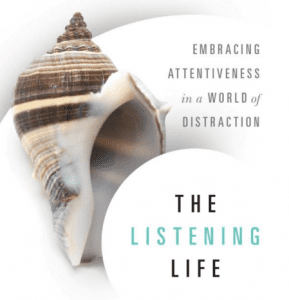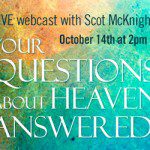By Ann F-R:
The Righteous Mind: Why Good People are Divided by Politics and Religion explores how human morality develops and affects our daily choices and interactions. In ch. 3, Elephants Rule, Haidt further developed his metaphor of body and mind as an elephant and rider, which illustrated the first principle of the social intuitionist model: “Intuitions come first, strategic reasoning second.” We prefer to imagine that our thoughts can be higher & purer than our own actions, and better than everyone else’s thoughts, too. To our dismay, we learn that our moral thinking more naturally serves as an argumentative defense lawyer for our elephants, not as a sincere guide in search of truth.
Numerous studies reveal how physical milieu & our senses affect our moral reasoning, or “how our automatic self-righteousness works”. (p.54). Seemingly innocuous changes to environment – having interviewees wash their hands before a survey, a whiff of “fart spray” in the air, or the presence of hand sanitizer nearby – change people’s moral judgments. These small changes are called “affective primes”, and weight judgments and reaction times. Essentially, our bodily intuitive processes (the elephant) evaluate instantaneously, and then reasoning kicks in to justify the elephant’s evaluation. Furthermore, affinity groups have been found to be “affective primes” – social groups and political groups. “Most people turn out to have negative implicit associations with many social groups, such as black people, immigrants, obese people, and the elderly.” (p.57) (We can check our attitudes online: the Implicit Association Test.) Snap evaluations of attractiveness, competence & likeability influence voting. The “[Lady] Macbeth Effect” seems especially pertinent to John 8:2-11:
Do we have personal testimony and that of scripture regarding actual paths taken and their subsequent effects on moral actions, decisions and thinking? Consider the indwelling Holy Spirit’s affects on our natural choices. Biblical exemplars could include Proverbs 1 (note vv. 22-33) and Matthew 16:13-23 with Matt. 26:51-56 (cf. John 18:10).
Subjects who are asked to wash their hands…become more moralistic about…moral purity… ..immorality makes people want to get clean. People who are asked to recall their own moral transgressions, or merely to copy by hand an account of someone else’s moral transgression, find themselves thinking about cleanliness more often, and wanting more strongly to cleanse themselves. (p.61)
Do this insight studies shed light on the Pharisees’ & Jesus’ actions in John 8?
Infants of 6 months “are watching how people behave toward other people, and they are developing a preference for those who are nice rather than those who are mean.” (p.64) Neuroscientist Damasio showed that losing connections to emotion-processing areas of the brain compromises “moral competence”. (Psychopaths’ brain scans differ from normal scans; their emotive centers don’t react when presented with horrific images.) Studies conducted by philosopher Joshua Greene using fMRI scans confirm these results. The relative strength of emotional processing activity in the normal brain “predicted the average moral judgment.” (p.66) People are more apt to judge that flipping a switch which kills one person instead of five people is acceptable, while the horror of personally shoving the person with a bare-handed push is not. Greene correlated the intensity of activity within the emotion-processing areas to people’s choices. It seems that the further we remove our bodies’ activity from the immediate cause of death, the easier it is to harm others.
Shall we reconsider the moral implications of criminal & capital punishment, modern warfare and its weaponry?
While the elephant (automatic processes) takes precedence in moral reasoning, it does not mean that the rider (controlled processes such as reasoning) cannot influence the elephant. Haidt points out that we are social elephants, and friendly/unfriendly human interactions affect our leanings.
When discussions are hostile, the odds of change are slight. The elephant leans away from the opponent, and the rider works frantically to rebut the opponent’s charges. But if there is affection, admiration, or a desire to please the other person, then the elephant leans toward that person and the rider tries to find the truth in the other person’s arguments. (p.68)
AFR: The effects on moral thinking of family, friends, social groups (including race, gender, age-related, religious and political, e.g.) and communities weave into our reasoning processes in complex patterns. Should our faith create & sustain an alternative framing of reality which offers a new perspective to understand life, relationships and community? “[Social psychologist] Zajonc said that thinking could work independently of feeling in theory, but in practice affective reactions are so fast and compelling that they act like blinders on a horse: they ‘reduce the universe of alternatives’ available to later thinking.” (p.56) Psychological studies have obvious limitations, not the least of which is their inability, thus far, to account for each person’s history of prior actions, behavioral choices and how they may affect which options are visible to the elephantine judgment-maker. Contemporary cultural standards provide lenses, too, through which the majority of people evaluate situations.
Do we have personal testimony and that of scripture regarding actual paths taken and their subsequent effects on moral actions, decisions and thinking? Consider the indwelling Holy Spirit’s affects on our natural choices. Biblical exemplars could include Proverbs 1 (note vv. 22-33) and Matthew 16:13-23 with Matt. 26:51-56 (cf. John 18:10).











